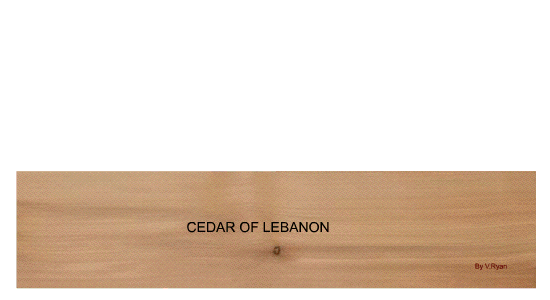|
General Description: This is a softwood, the heartwood is strongly
scented and resinous with contrasting growth rings marked by the darker
dense latewood zones. There may be grain disturbance around knots in the
timber from parkland trees, but selected grades are straight grained with
medium to fine texture. There may be ingrowing bark pockets in the wood –
a feature of true Cedars. Weight 560 kg/m3 (35 lb/ft3); specific gravity
0.56.
Mechanical Properties: This soft, brittle timber has a low bending
strength and stiffness, resistance to shock loads and crushing strength.
It also has a very poor steam bending classification due to resin
exudation.
Working Properties: Easy to work with hand or machine tools, with
little blunting effect on cutters. Large knots and ingrown bark may cause
difficulty when machining. Nails and screws hold well and the wood stains,
varnishes, paints or polishes to a good finish.
Durability: Durable, liable to attack by pinhole borer, longhorn
beetle and sirex. The heartwood is resistant to preservative treatment and
the sapwood moderately resistant.
Uses: Suitable for joinery, doors and interior decoration from
selected grades and is used locally in the Middle East for building.
Timber grown in the U.K. is usually park grown and can be knotty and is
used mainly for garden furniture, gates, fences and exterior work.
Selected logs are suitable for architectural wall panelling, interior
joinery and furniture.
|
